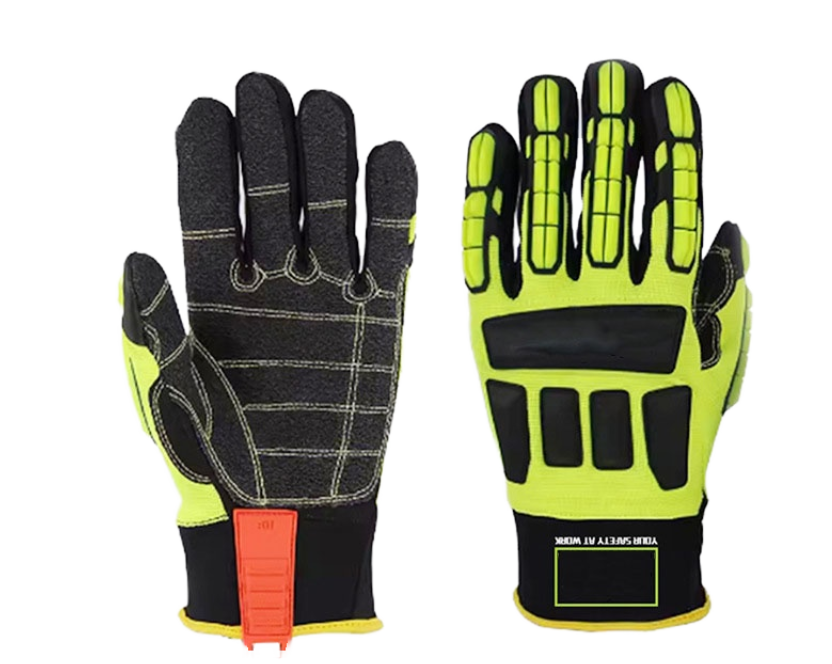Email format error
Email cannot be empty
Email already exists
6-20 characters(letters plus numbers only)
The password is inconsistent
Email format error
Email cannot be empty
Email does not exist
6-20 characters(letters plus numbers only)
The password is inconsistent


How to Choose a Reliable Mechanical Glove Supplier
In industrial and mechanical sectors, hand protection is non-negotiable. From assembly lines to construction sites, mechanical gloves shield workers from abrasions, cuts, impacts, and punctures. However, the effectiveness of these gloves hinges on their quality—and that starts with choosing the right mechanical glove supplier. This guide walks you through key considerations for sourcing gloves that meet safety, comfort, and compliance standards.
Why Your Choice of Supplier Matters
Not all glove suppliers are created equal. Partnering with an unreliable provider can lead to:
-
Inconsistent product quality, increasing injury risks.
-
Non-compliance with safety standards (e.g., ANSI, EN).
-
Supply chain disruptions, causing project delays.
-
Higher long-term costs due to frequent replacements.
A reputable supplier ensures gloves are durable, ergonomic, and tailored to your industry’s needs.
Key Features of High-Performance Mechanical Gloves
Before evaluating suppliers, understand what makes mechanical gloves effective:
-
Material Selection:
-
Leather: Natural abrasion resistance (e.g., cowhide, goatskin).
-
Synthetic Polymers: Nitrile, PVC, or polyurethane coatings for grip and chemical resistance.
-
Cut-Resistant Fibers: Kevlar®, Dyneema®, or steel mesh for sharp-object handling.
-
-
Design Elements:
-
Reinforced Palms: Extra layers in high-wear areas.
-
Ergonomic Fit: Pre-curved fingers and flexible materials for dexterity.
-
Cuff Styles: Knit, safety, or gauntlet cuffs for coverage.
-
-
Certifications:
-
ANSI/ISEA 105: Rates cut, puncture, and abrasion resistance.
-
EN 388: European standard for mechanical risks.
-
CE Marking: Indicates compliance with EU safety regulations.
-
How to Identify a Trusted Mechanical Glove Supplier
-
Industry Experience and Reputation
Look for suppliers with a proven track record in your sector (e.g., automotive, construction, logistics). Check client testimonials and case studies. -
Product Range and Customization
Top suppliers offer:-
Gloves for specific tasks (e.g., welding, material handling).
-
Custom sizing, colors, and branding options.
-
Samples for testing before bulk orders.
-
-
Quality Assurance and Certifications
Ensure they:-
Source materials from reputable manufacturers.
-
Provide detailed product specs and test reports (e.g., ASTM F1790 for cut resistance).
-
Hold certifications like ISO 9001 for quality management.
-
-
Supply Chain Reliability
Evaluate their:-
Production capacity and lead times.
-
Logistics partnerships for on-time delivery.
-
Inventory management to avoid stockouts.
-
-
Technical Support and Service
The best suppliers assist with:-
Glove selection based on your hazards.
-
Training resources for proper use and care.
-
After-sales support for returns or issues.
-
Top Mechanical Glove Suppliers Globally
While many suppliers exist, some stand out for quality and innovation:
-
Ansell (USA): Known for HyFlex® and AlphaTec® lines.
-
Superior Glove (Canada): Specializes in impact-resistant gloves.
-
SHOWA Group (Japan): Offers eco-friendly and high-dexterity options.
-
MCR Safety (USA): Provides gloves for construction and manufacturing.
-
Chinese Manufacturers: Companies like Towa gloves balance cost and quality for bulk orders.
Industry Trends Shaping glove Supply
-
Sustainability: Recycled materials and biodegradable gloves are gaining traction.
-
Smart Gloves: Sensors for monitoring hand fatigue or environmental hazards.
-
Lightweight Protection: Advanced fibers like Dyneema® offer strength without bulk.
-
Customization: Suppliers use 3D modeling for perfect fits and task-specific designs.
Questions to Ask Potential Suppliers
-
Can you provide certifications for your gloves?
-
Do you offer custom sizing or branding?
-
What is your typical lead time for 10,000-unit orders?
-
How do you handle product defects or returns?
Conclusion
Choosing the right mechanical glove supplier is critical for workplace safety, productivity, and cost efficiency. Prioritize suppliers with robust quality control, industry expertise, and a commitment to innovation. By partnering with a reliable provider, you ensure your team has gloves that protect, perform, and comply with global standards.

